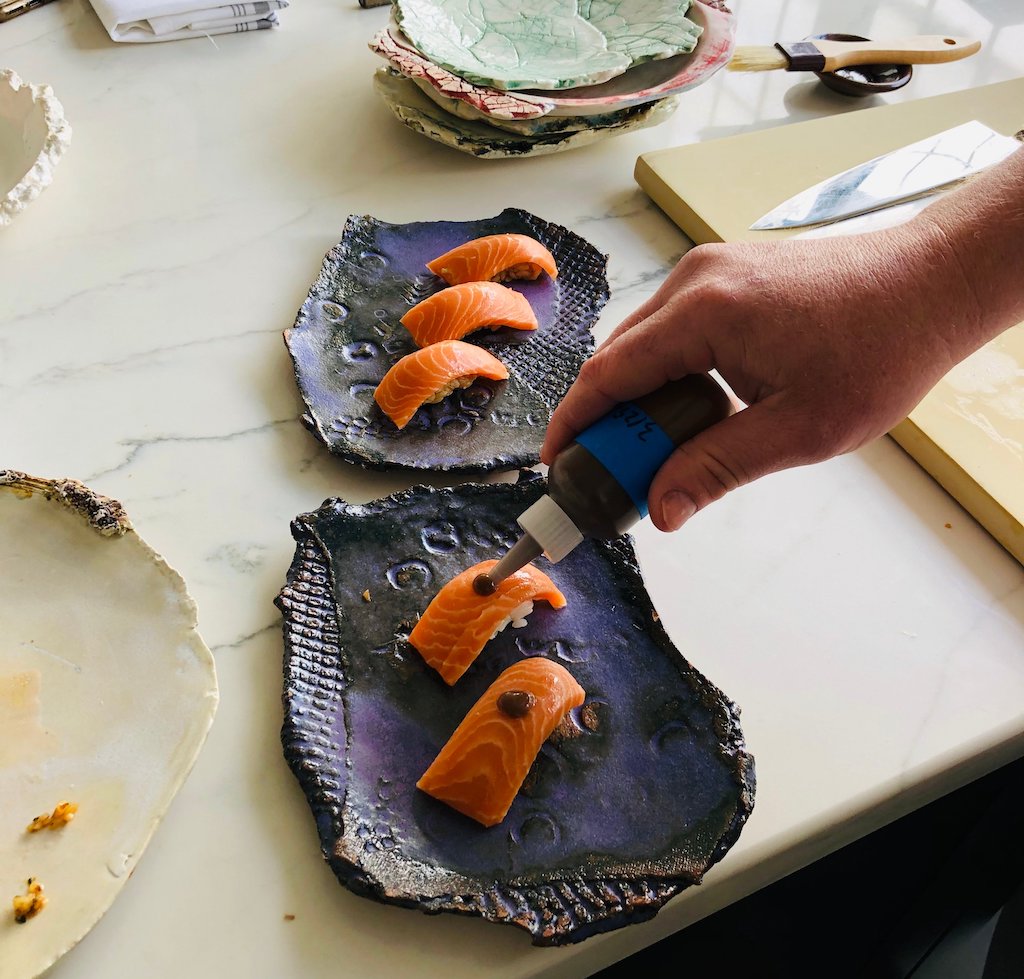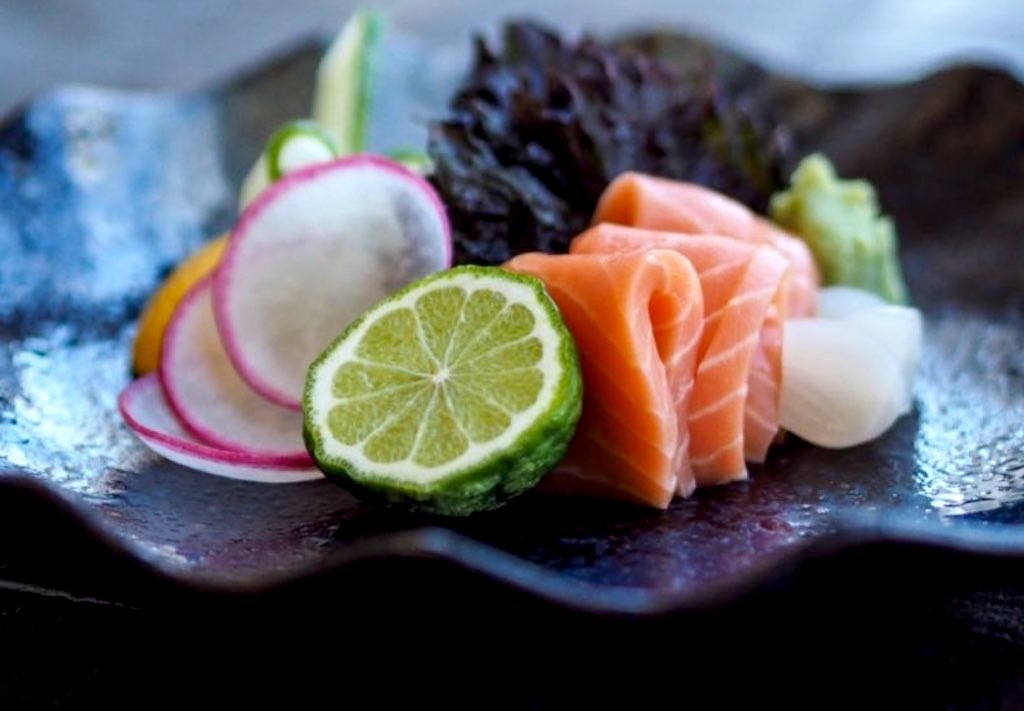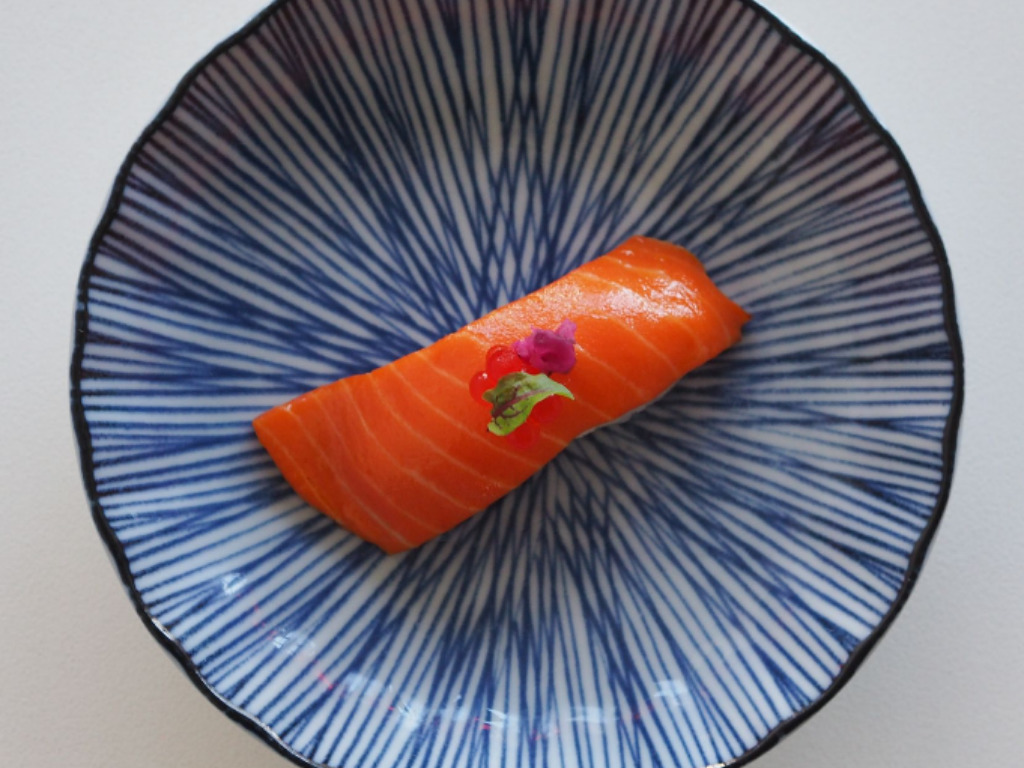4 Mins Read
San Francisco-based cellular agriculture startup Wildtype has announced a successful Series B funding round totaling $100 Million to launch its cultivated salmon at scale across the U.S., from foodservice operators to retail outlets. Leonardo DiCaprio, Cargill, Robert Downey Tr.’s FootPrint Coalition and Temasek all participated, alongside others. The round brings Wildtype’s total funding to date to more than $120 million and from our understanding represents the biggest funding round globally for the cultivated seafood sector.
While distribution agreements have been in place with sushi chain Snowfox and Pokéworks since December of last year enabling the restaurants to be at the front of the supply queue, it remains to be seen how quickly Wildtype’s ambitious launch plans can be put into practice. The big challenge? Regulatory approval. While FDA proceedings began in 2019, so far the products have not been given the green light for consumer sales.

The big question
The upsides of cultivated seafood are easy to understand. Less reliance on commercial fishing, regeneration of marine ecosystems and better health for humans. The latter comes from not consuming heavy metals and other toxins that caught fish contain. However, it is still not known if consumers are ready to eat fish grown in metal tanks though early consumer research suggests Asian consumers are open to it.
Wildtype creates its sushi-grade salmon using cultivated Pacific salmon cells, grown in tanks that wouldn’t look out of place in a brewery. The cells are introduced to plant-based scaffold structures which help to generate a certain shape and fibrosity of protein. Despite a successful chef-led tasting in 2021, regular consumers’ mindsets are not yet predictable.
Despite plant-based meat seeing a huge uptick, the notion of cell-based foods is still relatively new. While plant-based meat offers an alternative to a known health risk, in the form of red meat, the contaminants found in fish are still not widely understood. Mercury, microplastics and dioxins are all common discoveries in food fish, which are ingested by eaters. Marrying the clean-label of cultivated salmon with better human health, while not sacrificing a beloved food item will be essential.
The future of fish
During a tasting with Green Queen editor Jill Ettinger, co-founder Justin Kolbeck said that fish is “one of the few foods that we eat where we just accept flaws, right? Mercury and microplastics, antibiotics, parasites.” He continued: “what if we can get rid of all that entirely?”
Producing only the edible cuts of salmon, Wildtype claims that its product will enable faster preparation by chefs and reduce food waste. In addition, irrefutable traceability will be possible. The latter is “particularly relevant in the world of seafood where people often order one thing and receive another,” Aryé Elfenbein, co-founder of Wildtype told TechCrunch.
Reaching price parity with conventional salmon could prove difficult. As it stands, Wildtype is a small company. The salmon takes between four and six weeks to cultivate. However, automation and multiple production sites could help to streamline the supply chain, once operational and Kolbeck told TechCrunch that “In the end, we’ll have a very affordable and accessible product.”

Waiting for approval
The FDA remains judicious about the regulatory approval for cultivated meats. Wildtype is not the only company to be eagerly awaiting the agency’s blessing to begin distribution through strategic partners. Fellow California cell ag company Upside Foods is also eager to debut its cultivated chicken as soon as possible.
To expedite the process where it can, Wildtype sought out restaurant partners and ensured proper public liability insurance is in place. No information is forthcoming about potential approval dates.
Industry-wide disruption
Wildtype is not the only cultivated seafood manufacturer looking to usurp the convention fish production sector. In Asia, where demand for seafood is set to fast outweigh supply, a number of big hitters are looking to make either mark. Shiok Meats, BlueNalu and Avant Meats are amongst those furthest along with their R&D, with the first two boasting significant funding war chests. In fact, San Diego-based BlueNalu previously broke records for cultivated seafood funding with a $60 million round in January 2021.
Until the FDA gives the go ahead, consumer will need to make do with plant-based options, and the vegan whole-cut sushi fish market is showing remarkable innovation. Two US-based companies, Current Foods and Impact Food are working to create the most realistic animal-free sushi-grade tuna.
All photos by Wildtype.





